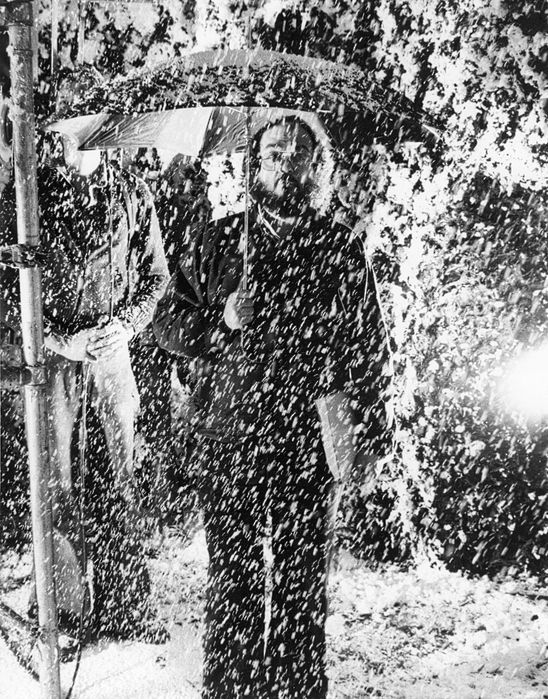THE WOEFUL FATE OF SAN BERNARDINO, CALIF., OFFERS A GLIMPSE INTO PITTSFIELD’S FUTURE … RELENTLESS MONEY GRABS BY GREEDY UNIONS HAVE TAXPAYERS ON THE RACK … SCHOOL COMMITTEE, MAYOR, COUNCIL JUST SIT BACK AND WATCH THE SPECTACLE
By DAN VALENTI
PLANET VALENTI News and Commentary
(FORTRESS OF SOLITUDE, MONDAY, NOV. 19, 2012) — You want to read the fate of such towns that continue down the path of Pittsfield? Pull up a chair and read of the fate of San Bernardino. That’s what’s coming down the pike for Pittsfield, Mass.
Case in point as a causative factor: the recently signed school contract.
There are two sets of facts to consider: First is the fact that the school department continues to fail the community by failing to provide pupils with a first rate education. Academic performance drops in an inverse relationship to the ever-increasing amounts of money taxpayers have to contribute. No other sector that we can think of, whether public or private, operates in this way. To automatically reward failure is ridiculous, and yet, that is what the city does with teachers.
In discussing the new three-year teachers’ contract, the school committee, members of the city council, the mayor, and the administration have attempted to downplay the “rape of the taxpayer.” They refer to an average of 1% pay hike each year for three years. That is only “true” in a technical sense. Teachers have automatic step raises. No matter how lousy a teacher is, no matter how ineffective or burnt out, that teacher automatically gets a raise for each year of seniority. Factor in the 600 or so teachers getting step raises, and the new contract allows actual pay raises of between 10% and 16%.
This comes as a time when school supt. Gordon Noseworthy has pointed out:
* MCAS scores are down.
* Achievement gaps are widening (a fancy way of saying kids are getting dumber).
* Performance-assessment metrics “show a significant need for growth”
Noseworthy, in blasting the teachers union for turning down a chance for a $20 million federal grant:
* Accused the teachers of lying
* Said the school department’s pleas “fell on deaf ears”
* Said teachers objected because they didn’t want to do any extra work.
* The teachers defeated the application grant, 135-41. In a meeting that important to taxpayers, only one-third of the union bothered to vote.
With all this, the teachers continue to rob the city blind.
This type of “give away the store” approach with the Big 3 municipal unions (teachers, police, fire) cannot continue with dire financial consequences. In our role as Cassandra, THE PLANET tells you the truth: The city is on the road to bankruptcy.
Read the cautionary tale of San Bernardino, Calif.
—– 00 —–
From suburb to basket case: How California city traveled the road to ruin

Anthony Russell, 21, sits in the deserted Carousel shopping mall in San Bernardino, Calif., on Sept. 11.
Reuters
SAN BERNARDINO, Calif. — When this sun-drenched exurb east of Los Angeles filed for bankruptcy protection in August, the city attorney suggested fraudulent accounting was the root of the problem.
The mayor blamed a dysfunctional city council and greedy police and fire unions. The unions blamed the mayor. Even now, there is little agreement on how the city got into this crisis or how it can extricate itself.
“It’s total political chaos,” said John Husing, a former San Bernardino resident and regional economist. “There is no solution. They’ll never fix anything.”
Yet on close examination, the city’s decades-long journey from prosperous, middle-class community to bankrupt, crime-ridden, foreclosure-blighted basket case is straightforward — and alarmingly similar to the path traveled by many municipalities around America’s largest state. San Bernardino succumbed to a vicious circle of self-interests among city workers, local politicians and state pension overseers.
Unions poured money into City Council elections, and the City Council poured money into union pay and pensions. The California Public Employees’ Retirement System (Calpers), which manages pension plans for San Bernardino and many other cities, encouraged ever-sweeter benefits. Investment bankers sold clever bond deals to pay for them. Meanwhile, state law made it impossible to raise local property taxes and difficult to boost any other kind.
No single deal or decision involving benefits and wages over the years killed the city. But cumulatively, they built a pension-fueled financial time-bomb that finally exploded.
In bankrupt San Bernardino, a third of the city’s 210,000 people live below the poverty line, making it the poorest city of its size in California. But a police lieutenant can retire in his 50s and take home $230,000 in one-time payouts on his last day, before settling in with a guaranteed $128,000-a-year pension. Forty-six retired city employees receive over $100,000 a year in pensions.
 /Firefighter Captain Tim Smith, 41, puts on his boots to answer a call in San Bernardino, Calif.
/Firefighter Captain Tim Smith, 41, puts on his boots to answer a call in San Bernardino, Calif.Almost 75 percent of the city’s general fund is now spent solely on the police and fire departments, according to a Reuters analysis of city bankruptcy documents — most of that on wages and pension costs.
In the dark
San Bernardino’s biggest creditor, by far, is Calpers, the public-employee pension fund. The city says it owes Calpers $143 million; using a different calculation, Calpers says the city would have to pay $320 million if it left the plan immediately.
Second on the city’s list of creditors are holders of $46 million worth of pension bonds — money borrowed in 2005 to pay off Calpers. The total pension-related debts are more than double the $92 million owed to the city’s next 18 largest creditors combined.
Complicating matters were obscure budgeting procedures that left residents in the dark. The word “pension” doesn’t appear once in the most recent 642-page budget, and retiree costs are buried in detailed departmental line items.
“I’ve been asking for years for the pension costs,” said Tobin Brinker, a former council member and pension-reform advocate, who lost his seat last year to a challenger backed by nearly $100,000 in contributions from the fire and police unions. “I still don’t know the number.”
James Penman, the longtime city attorney who critics say is closely aligned with the unions, alleged during a council meeting this summer that 13 of the past 16 city budgets had been falsified. He has refused to elaborate on that accusation since, but told Reuters that he hasn’t retracted it either.
 /James Penman, attorney general of San Bernardino city, talks to the media at the City Council chambers on July 11.
/James Penman, attorney general of San Bernardino city, talks to the media at the City Council chambers on July 11.The Securities and Exchange Commission has opened an informal inquiry into the San Bernardino situation because of the city’s bond obligations. The federal Department of Housing and Urban Development, which has provided funds to the city in the past, says it is conducting a routine periodic audit of the city’s books that began before the bankruptcy.
But unlike in the small Southern California cities of Bell, where eight city officials face trial on allegations that they stole from the public, and Vernon, where three officials have been convicted of corruption, San Bernardino’s problems appear to be mainly the result of back-scratching on an epic scale.
It’s a pattern common throughout the Golden State — and while the particulars are quite different, it is akin to what happened in other states with severe financial crises, such as Illinois and Pennsylvania.
‘2.5 AT 55’
By the time San Bernardino’s council met behind closed doors on Sept. 17, 2007, it was already clear the city was in trouble.
Just six months earlier, a report by consulting firm Management Partners showed that spending was outpacing revenue, pension costs were escalating and the city was quickly accumulating unfunded retirement liabilities.
Last decade’s housing boom had papered over the deep economic problems stemming from the shutdowns of a huge steel mill in the 1980s and the Norton Air Force Base in the 1990s. Now the boom was over. Tax revenues were poised for a big fall: Between 2007 and 2011, they dropped 30 percent, according to Husing, the regional economist.
Yet on this day in 2007, the city was about to raise pension benefits again, in a deal allowing non-public-safety workers to retire at 55 with a pension equal to three-quarters of their salary. Called “2.5 at 55,” it calculated annual pensions at 2.5 percentage points of final salary for each year worked — 75 percent for 30 years.
It wasn’t nearly as good a deal as the one police and firefighters enjoyed – a “3 percent at 50” plan passed a year earlier. That enabled the public-safety workers to retire at 50 with a pension of up to 90 percent of their final salary. Regardless, “2.5 at 55” was what union negotiators had asked for, and the council was poised to rubber-stamp it.
But then something happened. And in a city which has a particularly toxic brand of politics, what transpired depends on who you talk to.
According to four people present at the meeting, Penman, the city attorney, brought a pregnant co-worker to the session. By their account, Penman’s co-worker made an emotional case for an even more generous pension deal. Otherwise, she said, she would be forced to leave San Bernardino and seek work in a city with better benefits. She had her family to consider, she said.
Penman vehemently denies that any of this took place. “Welcome to San Bernardino politics,” he said.
Runaway train
That afternoon, in public session, the council unanimously voted to award its non-safety workers 2.7 percent at 55 – more even than the union sought. That tiny fraction could raise the pension on a $100,000 salary by $6,000 per year. Penman, in office since 1987, earned $164,799 last year, according to city payroll data.
Meanwhile, San Bernardino continued to boost wages along with benefits. The average salary for a full-time San Bernardino firefighter in 1997 was $75,610, adjusted for inflation into 2010 dollars. By 2010, it was nearly $147,000, according to a Reuters analysis of Census Bureau data.
City wages were a runaway train, according to the Management Partners report. The city charter automatically calculated police and firefighter pay using a formula linked to wages offered by comparably sized cities — most of which were much wealthier than San Bernardino. Efforts to amend the charter were strongly opposed by the safety unions and voted down by the council earlier this year.
City workers took advantage of compensation rules, common among public employees in California, that made retirement deals even better. Key to this was boosting an employee’s eve-of-retirement wages, which form the basis of the pension calculations.
Mike Conrad, chief of the fire department from 2006 to 2012, said he saw managers negotiate a promotion in their final year, to boost their final salary. It was not uncommon for someone to move into a position with a $30,000 annual pay rise shortly before retirement, he said.
Retiring employees are also able to extract big one-time “cash outs.” In San Bernardino, eight hours per month of unused sick time can be rolled over and saved year after year, without limit. Come retirement, 50 percent of the total can be taken in cash. The same goes for unused vacation time: up to 460 accrued hours of vacation — nearly three months of salary — can be cashed in at the fire department, Conrad said.
The police have a similar deal. In 2009, patrol Lt. Richard Taack retired at the age of 59, after 37 years of service. He took home $389,727 that year, including $194,820 in unused sick time and $33,721 for unused vacation time, according to city payroll records. Shortly after Taack retired — on an annual lifetime pension of $128,000 — he was hired part-time by Penman’s city attorney’s office, at $32 an hour.
Potholes and empty lots
Taack’s 2009 income was nearly double that of the city’s entire street-sweeping department. In 2011, overtime pay alone for the police department — $2,766,175 — exceeded the total payroll of 12 other San Bernardino city departments, according to the Reuters analysis of payroll data. Taack didn’t respond to requests for comment.
“I can’t begrudge the man for receiving what he’s entitled to under the contract,” said David Green, the head road sweeper, who has seen his department cut to five people from 13 when he joined in 1995. But he said there should be a better balance between the safety forces and other departments. “Nobody wants to drive a car and have to hit a three-foot pothole.”
Andrea Travis-Miller, interim city manager, told the council this summer that 250 non-safety positions had been eliminated in the past three years to save money — and implied that police and fire benefits were crowding out other essential services. “I believe that city buildings, roads, trees and parks that have begun to show neglect would deteriorate further if more cuts are made,” Travis-Miller said.
The police and fire unions fiercely dispute the charge that large salaries and pensions are to blame for the predicament. They point to the housing crash, which left the city with the fourth-worst foreclosure rate in the country.
Scott Moss, head of the firefighters union, said 20 positions had already been cut from the Fire Department, leaving about 120 people.
“There’s been mismanagement for years,” Moss said, over coffee in a local restaurant. He noted that Mayor Patrick Morris had majority support on the City Council for six years until union-backed members regained a majority in March. “The mayor and his people are trying to make us look bad.”
Moss, 46, a fire paramedic, said he might retire at 53. Payroll records show a base pay of $94,500, and total 2011 wages, with overtime, of about $147,000. Moss confirmed the base figure but didn’t comment on the overtime number.
Sick of the blame
Moss said he is sick of people blaming pensions. “You go to bankruptcy, you got to blame somebody. So they say it’s the benefits, it’s the overtime — it’s everybody but them,” Moss said. “But what have they been doing these last six years?”
On sick-pay cash-outs, Moss said: “If you call in sick, you’re a bad employee. So my guys don’t call in sick. Then you get all this time you are owed — and you get vilified.”
He added: “This is a dangerous city. It’s an old, decayed city. It burns. There are gangs. The pay and benefits attract the police and firefighters it needs. Without them, you lose all the good ones. That’s the balance.”
Crime and gangs are real dangers in San Bernardino. In 2010, according to Federal Bureau of Investigation data, the rate of known violent crimes — 8.15 per 1,000 people — was higher than in any other city in the region.
A five-minute drive from City Hall, on a residential street, sit flowers and homemade signs next to a picture of Angel Cortez. The 22-year-old was shot in the back of the head in May in what police suspect was a “gang-related” murder. His body was found in the backyard of a vacant home. His killers had first tried stuffing his body into a trash can, then returned to dig a hole, before unsuccessfully attempting to burn his body, police said.
 /
/
Mayor Patrick J. Morris poses for a photo in San Bernardino, Calif., in July 2012.
Mayor Morris, a 74-year-old former judge who’s been in office six years, is scathing about the power he says the unions have over much of the city council. The unions, he said, “wag the dog.” (Council members are paid just $50 a month for their service, but also receive a car allowance worth $600 a month).
Morris added: “I have no vote on the council. I can only veto a vote if it is 4 to 3. All I have is the power of persuasion. I’ve told them a bunch of times to be far more conservative, not to be so generous with our unions, and it’s advice they have largely ignored.”
‘Mean, divisive, corrosive’
Morris isn’t running for re-election when his term expires a year from now. “The politics of this place are and have been for decades mean-spirited, divisive, and it’s corrosive to the extreme,” he said.
Penman denies being influenced by the unions. He said he takes campaign contributions from the police and firefighters like most other elected officials in California. He said he actually split with the police union in 2007 — a rupture reported at the time — and wasn’t endorsed by them again until his last re-election bid in 2011. Campaign finance records show that he received $30,000 in contributions from the police and fire unions in 2011.
Of his critics, Penman said: “You are hearing from some people whose ethics and honesty are very much in doubt.”
A key facilitator of San Bernardino’s generous retirement packages was Calpers, which manages pensions both for state workers and for many city and county employees across California.
Led by a board of directors who are all themselves members of the pension plan, Calpers has for decades pushed to sweeten benefits for retirees.
A 1999 law championed by Calpers, known as SB 400, cut the retirement age five years and increased benefits for state workers, all on the premise that a rising stock market meant benefits could be juiced up at little or no cost. Many cities and counties, though not required to go along, were happy to heed Calpers’ analysis. About half — including San Bernardino — adopted the richer benefit formula.
When the stock market tumbled in 2000, cities and towns suddenly had to ramp up payments to Calpers to make up for the hit to their fund balances, which were heavily invested in shares. Fee-hungry investment bankers stepped into the breach.
Led by the now-defunct Lehman Brothers, they persuaded many cities — including San Bernardino and Stockton, which is also in bankruptcy — that the best way to satisfy growing obligations to Calpers was to borrow the money via so-called pension obligation bonds. San Bernardino raised $50 million in 2005 by issuing these notes. Between 1999 and 2009, 26 California cities sold about $1.7 billion of debt to fund their pensions, including bond issues that were used to pay off earlier debt.
‘Calpers versus Wall Street’
Yet even in bankruptcy, reducing pension costs by cutting benefits is not an option – at least according to Calpers.
That argument has never been tested in court: When the Bay Area city of Vallejo went bankrupt in 2008, it declined to challenge the pension payments to Calpers, in part because of the daunting legal costs involved.
But the pension-bond insurers who are now on the hook for defaulted bonds in both Stockton and San Bernardino have signaled their intention to do battle with Calpers in bankruptcy court. San Bernardino, in an unprecedented move, has already stopped making payments to Calpers.
“Calpers is the 800-pound gorilla in the room,” said Michael Sweet, a bankruptcy attorney at Fox Rothschild, which is not representing any parties in the San Bernardino bankruptcy. “No one has yet taken on Calpers. This is going to be a huge fight, and it’s going to be Calpers versus Wall Street.”
Calpers says it wasn’t responsible for the decisions made in San Bernardino. Alan Milligan, chief actuary at Calpers, said the 1999 legislation “provided options to cities and agencies to change their retirement benefits, but it did not encourage or force them” to do so. “Calpers does not give advice about how an agency should pay for their retirement benefits.”
Brad Pacheco, a spokesman for Calpers, said San Bernardino lost major employers in recent years and was one of the U.S. cities hardest hit by the foreclosure crisis. He said San Bernardino’s annual pension costs account for just 10 percent of the total city budget.
Those figures, however, exclude the city’s $46 million in pension-bond debt plus its unfunded debt to Calpers. The city in its bankruptcy filing says it is $143 million in the hole to Calpers. Calpers says that if San Bernardino pulled out of the plan, it would owe $320 million to cover its current and future obligations.
Miserable company
San Bernardino and Stockton are hardly alone. A handful of other small California cities, including Atwater, Hercules and Compton, are teetering near bankruptcy.
Big California cities that run their own pension plans also have deep problems. San Jose, hub of Silicon Valley, and San Diego, biotech center of California, both passed pension reforms in June in the face of unmanageable retirement benefits. they are now defending those measures in court against public-employee lawsuits.
In Los Angeles, Mayor Antonio Villaraigosa, a former labor organizer, led a push to raise the retirement age and cut pensions for new, non-safety city staff. He exempted police and fire employees. A ballot measure sponsored by former Mayor Richard Riordan aims to include them in the cuts, too.
And while California has the biggest pension debt in the United States in dollar terms, it’s not the worst off. Illinois and Kentucky plans are battling for the dubious distinction of having the lowest ratio of assets to liabilities, according to the Center for Retirement Research at Boston College.
One of Gov. Jerry Brown’s marquee initiatives is “realignment,” an effort to move more public-safety, welfare and prison services from state control to the cities and counties. Local governments are more flexible and more responsive to local issues, Brown argues, and thus able to make better decisions.
Charles McNeely, who served three years as San Bernardino’s city manager after 13 years in the same post in Reno, Nev., quit last March, citing the “toxic” atmosphere on the council. He had warned repeatedly that without change, the city faced ruin. In a presentation to the City Council in August 2010, he said spending was far outpacing revenue and predicted a budget deficit of $40 million for this fiscal year.
“I don’t know how you could come out of that meeting not understanding we had a serious problem,” McNeely said in an interview. “I told them, ‘You’re headed for trouble, it’s a train wreck. You can’t keep doing business this way.'”
Additional reporting by Peter Henderson and Jim Christie in San Francisco.
CLOSE















Hey Dan,
Thanks for bringing all this to light.
San Bernadino, CA, Pittsfield, MA…… makes no difference.
The whole USA is headed into deep depression of which we will not come out of in our lifetime.
Former Chairman of the Fed Alan Greenspan admitted in an interview on Friday that this country is fiscally on the edge of a cliff.
The collapse of the US Dollar will be thee biggest event probably in the history of the world.
The collapse of the dollar will likely happen by 2020, when China’s currency will become the world standard. Nonetheless, it is to a city’s benefit to bring it’s deficit and its outstanding liabilities under control. Addressing budget and financial issues have become critical. Adding to the burden of taxpayers through greedy public union demands (and cowardly politician caving) will only make a bad situation worse.
Dan I agree that as long as this monetary system we live under is a viable entity, those running the cities and towns should be fiscally responsible and keep things under control.
I think you’re being a little generous with your 2020 time frame. I hope we have that much time. I think that before the end of Barack Obama’s Presidency, you will not recognize this country we grew up in.
Dan, its already happening:
http://www.veteransnewsnow.com/2012/11/19/dollar-collapse-7-of-10-asian-countries-turn-to-yuan/
Treasury Secretary Timothy Geithner said the U.S. “absolutely” should get rid of the debt ceiling as soon as possible. Yup lets spend more money we don’t have and dig the hole a little deeper We are doomed with people like him running the show. Government at all levels is totally out of control with fraud and waste. Dark times are coming!
The sky is falling!
People would rather get upset over something a politician said after losing an election.
People get the government they deserve. And what happens then is also what they deserve.
And just what is that great mayor, Dan Bianchi, the guy who was supposed to bring common sense and fiscal reform to Pittsfield City Government, doing?
He’s agreeing to give an already overfed city employee union a whopping pay raise in a city with both a lousy economy and no money in city coffers to pay for anything.
Watch as other city employee unions now seek to replicate the fete of the teachers union, seeking raises and increased benefits.
Does anyone else find Bianchi to be a whopping disappointment?
I agree, so far I have found him to be a dissapointment. Just more of the same.
I’m not disappointed because I had little faith in him or Mr. Marchetti. They are both liberal Democrats and my have different styles but they are for the same thing.
HUGH disappointment and hot headed
I agree that Dan is a disappointment, but the other candidate would have been no better. They all pander to the unions. Pittsfield is so corrupt, there are not jobs, and the people that do have jobs just keeping voting more money for themselves. For a city that supposedly values so-called Democratic principles of caring about the “little guy”, this is a joke and the joke is on the people who go to the polls like sheep and keep voting in Democrats. The gap between the haves and the have nots in Pittsfield is a wide canyon.
I thought the Democrats were so concerned about people at the top getting richer while those at the bottom get even poorer. The situation in Pittsfield just goes to show how hypocritical the Democratic philosophy really is.
PAT is right. Had Marchetti won, the teachers’ union, for example, would have fared just as well. I do think Bianchi has made a difference in two specific areas: He got a small compromise come budget time from the schools and he did get them to return more money ($190,000) to the city following the end of the FY 12 budget.
At least San Bernadino has a song:
http://www.youtube.com/watch?v=rGZ8u9-C4o0
But seriously folks:
We let GE off with giving Pittsfield a FREE TOXIC WASTE DUMP, and numerous poisons throughout New England
Then we let them NOT CLEAN THINGS UP, that would have been an industry, IF DONE PROPERLY, WOULD LAST TO EMPLOY YOUR GRANDCHILDREN.
Then we had the JUDAS money Doyle accepted, that has been peed away for a plethora of DUBIOS and mostly failed endevors.
Lets not forget the raping of the Kaminski farm/Wild Acres and the airport boondoggle that has no tangible benefits to Pittsfield, or Berkshire County as a hole.
And Yes, the schools produced better students for less, back in the 1900s, without overpaid mis-managers/council persons.
“Spend the rest of my life in San Bernadino” -FZ ?
Better than 30 days in PITTSfield!!!
Great piece Dan, one of the toughest things in life is trying to convinces someone that what they believe in, isn’t true. As a parents we never wanted to tell our kids there wasn’t a Santa. As adults we don’t want to believe there’s a fiscal cliff. What’s with this sequestration BS , they are feeding us ? It couldn’t happen here could it ? Our President wouldn’t lie to us, would he ? In a Few Good Men P.FC. Downey, does not understand why they are being given dishonorable discharges, while Dawson accepts the verdict, and explains to Downey that they had failed to stand up for those too weak to stand up for themselves, like Santiago. Thing’s are going to be fine Dan aren’t they ? We can just get the money from the rich to pay the salaries can’t we.
I guess that’s the byproduct of building an economy based on war preparation.
“There must be someone somewhere that needs killing”- There’s no one left Payne you’ve killed them all.”
Major Payne.
At the end of WWII, the U.S. did something it had never done before. It did not revert to a peacetime economy. To keep the economic growth going, the Pentagon and Big Biz (the “military industrial complex” of Eisenhower’s warning) dreamed up the Cold War, which got us to Korean, then Vietnam, the a whole bunch of “little” wars until Afghanistan and Iran.
It’s amazing how his warning fell on deaf ears until much later. Probably until nam most were on board. We should have a powerful military but it is too big big and has too many privatized involvement now.
I have, what could be considered in this economy, a pretty good job, though I make no where near what is spelled out as a firefighter’s or policeman’s salary in this article.
My wages have not grown in this bad economy and my buying power has deminished. All around me I hear of fiscal trouble and I am very worried.
For me a 10 to 16 percet raise would be really something. The teachers have always gotten a good deal in my opinion because they had the summer off. Their pay use to reflect that. Now not so much.
I am troubled by the reports I heard not long ago, that here in Pittsfield, a police officer working on a drug task force often makes in excess of 6 figures and records over 70 or 80 hours a week. Anyone that works full time knows that sustained effort of 70 or 80 hours a week is hardly realistic, safe or conducive to a good family life. There is probably some abuse of the sysytem there.
I am one that thinks that a colapse of life as we know it here in the USA is eminent. We cannot keep spending more than we make. Doesn’t work for anyone to do that, much less goverment. Anarchy will be the result when the bottom falls out. I am not ready nor do know how I could get ready for such an event.
Start saving organic seeds and invest in a portable water filtration system, a little lead and other survival needs wouldn’t hurt either but realistically most people’s chance at that point are very slim. I watched a show once that followed a family through a collapse due to a pandemic. Interesting stuff.
DAVE
You have fingered another out-of-control scam, which is the use of excessive overtime in the city.
The difference might be that in California, state law says they cannot raise taxes. Here in Pittsfield they can and do raise taxes, every Goddamn year. Never the less, I do see Pittsfield collapsing under its own weight within ten years. Hopefully by then I will be elsewhere reading about it all.
And Dan, you have been doing this blog for some time now, exposing the failings, greed and corruption in Pittsfield. One would think, that with the public threat of this exposure, that mismanagement and corruption would slow down. Sadly, in Pittsfield it seems to continue to escalate. Why?
Because the takers outnumber the makers.
i have only seen two people stand up against the reckless spending of the school dept.Councilor Yon has been a constant voice against pay raises during these tough times,She stressed not only this year but last year as well for the major unions to live within their means and consider the burden put on the taxpayer,Barry Clairmont joined her this year telling the school department to sharpen their pencils and look for money in their allready bloated budget. The mayor and the timid council refuses to do what is right and demand fiscal disipline and chooses to pander while the city they say they love and serve becomes burdened once again. I am ashamened not only of the mayor, but with the majority of the city council,as well as the school commitee. I am disgusted with leaders who refuse to lead . they shouldnt take a blind eye to tough issues but dive in and solve them so the future generations can have a more stable future. the mayor spoke of fiscal responsiblity and transperency during his run for office yet he has accomplished neither.
I know what would be the harm in everyone just sustaining their current salaries over the next five years. I heard an interesting approach on the radio the other day. It suggested public employees work a four day work week for 80% of the pay. This would make them more productive and give them a better quality of life while being able to provide service to the community, make a living and save money. It’s time the unions start thinking about more then just themselves.
Citizens of Pittsfield are getting what they deserve. Every, every election all they put in office, locally, State wide, ( then Obama) are the liberal demos. This city will never change who they put in office, so live with it, till its too late.
What the heck is this blog? The Glen Beck lovers blog? You people are so right winged you make the TeaBaggers look sane!!!!
That’s not true.
Liberalism is a chronic and incurable disease
No. Fundamentalism of any kind — that is, the extremities of both the left AND the right — make up the chronic and incurable. “Liberal” and “conservative” have become polarized to the point of meaninglessness.
Well as long as we’re on the schools,teachers and contracts here’s an idea to resolve ContractGate: Why not send the vocational students to NY/NJ to help rebuild the homes lost during Sandy?
Oh come on Bain Hater, I listen to them all Huckabee, Hannity, Levin, Howie Carr, Laura Ingraham. Rush. Dan brings something to the table that these tea baggers don’t, Dan isn’t on the radio, he’s got a blog that is the best Pittsfield ever had no need to go negative here
Baim Hater: Just telling the facts. You liberal are ruining this country, both you hate so much you won’t admit it. But you running the country, but of course its George’s fault
Dusty the answer is simple. If we continue to elect unqualified people like Mazzeo and Bianchi we have only ourselves to blame for the mess the city of pittsfield is in. They both spend there time pointing fingers at others instead of tackling the city’s issues.
I am not worried about those two. You however seemed focused on bashing them every chance you get. I sense that you would like to continually discredit them so that when the next election comes around your favorite GOB candidates will look better. It is a Limbaugh tactic and did not work out too well for him this time but don’t let that stop you.
Objectively, one has to agree with Dusty…Billy is one sided with a definite political agenda. There is no moderation to his slanted comments. They must be popular however at Remo’s and the Eastside. Gerry D. thanks him.
DV many thanks for your continued exposes. You output is amazing and the quality outstansing. I hope the community appreciates what it has here on the Planet.
GOB ? it is there actions?not me pointing it out. when they dont focus on a solution and demonize anyone who doesnt share their view. such as the statement GOB it just firery words that does nothing to solve big issues facing the city.If either one of them widened theirc tent and moved the city in a positive direction with those people, i would fall of my chair with pride that were finally gettting our act together.Leadership starts at the top.IM just as discourged with the school committee and their lack of care for the tax burden people are under.Having a diffrent view does not mean you love the city any less than someone else, i want peole to be brave and tacle issues that effect the little guy instead of wasting peoples time.just meet in the middle and address concerns that will benefit all of us.
Be careful mixing meds with alcohol. Just saying
Problems with the public union is the corruption at the top.The school system the police or fire dept. are all in the same boat, the upper ranks make way to much money while the hard working teacher,police officer or firefighter out busting their ass make peanuts.If you looked at the pay of city employees ( which i didn’t see this year in the gazzette) you would see the only people making over $100,000 a year are the School administration, Police ranking officers and Fire dept. officers. The upper ranks shouldn’t be making double what the workers make.
PAUL
You nailed it. Corruption at the top. The rank-‘n’-file in the three unions couldn’t have lower morale, and with justification. Each of the Big Three unions are led by interim or acting heads, and none of them has the respect of the majority of the ranks.